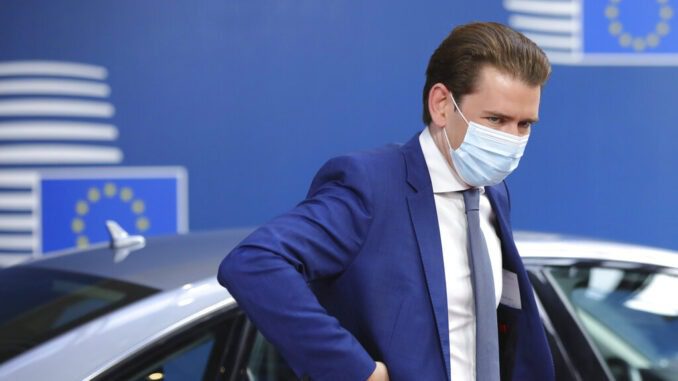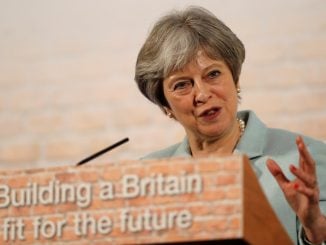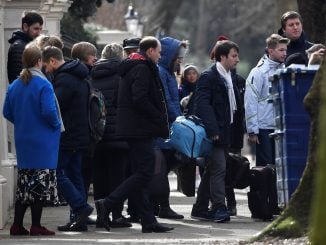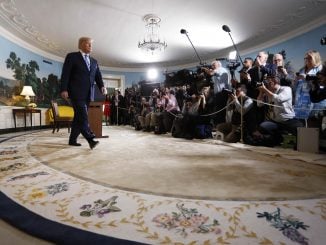
BRUSSELS — European Union chief negotiator Michel Barnier says Brexit trade negotiations will continue past Thursday’s deadline set by U.K. Prime Minister Boris Johnson.
At an EU summit, the leaders came out united to still seek a deal despite the dwindling time for agreement.
But Barnier said his team would be traveling to London for more talks next week and would host negotiations in Brussels the week after.
British Prime Minister Boris Johnson had set the first day of the European Union summit on Thursday as the deadline to get a trade and security deal to replace its EU membership that expired on Jan. 31. A transition period is set to end on Jan. 1, forcing negotiators to work fast if any deal still is to get legislative approval and legal vetting in the little time left.
EU leaders quickly addressed the issue at the opening of their two-day summit, and in a statement they called “on the U.K. to make the necessary moves to make an agreement possible.””
Knowing the chances of a deal are slimmer by the day, they also urged all in the EU to “step up their work on preparedness and readiness at all levels and for all outcomes, including that of no agreement.”
“It is for the U.K. now to commit itself and there are far too many areas where things don’t progress as they should,” said Dutch Prime Minister Mark Rutte.
Beyond the call for speed, the leaders are also set to flaunt their unity, something Britain has failed to dent during years of talks on the withdrawal conditions and now on a bare trade deal with the new non-member. It is indicative that Johnson’s call that Oct. 15 would be the deadline has made little impact.
Johnson’s office said after a video call with EU leaders Charles Michel and Ursula von der Leyen that the prime minister “looked forward to hearing the outcome of the European (Summit) and would reflect before setting out the U.K.’s next steps.”
Few doubt that Johnson will lean toward continuing the talks for a few more weeks. The negotiations remain in a deep rut over differences on the issues of state aid, common standards of regulation and fishing rights.
“Britain has already imposed so many deadlines that came and went,” said Rutte, arguing it was time to concentrate on content instead. During the Brexit divorce talks several deadlines were imposed as a final chance to get a deal, only to see both sides grudgingly negotiate further afterward.
All acknowledge that little progress was made recently on the key issues. Johnson’s office said that the prime minister in his talks with the two EU leaders “expressed his disappointment that more progress had not been made over the past two weeks.”
A trade deal has the potential to save hundreds of thousands of jobs and would avoid worsening the economic crisis brought on by the coronavirus pandemic.
“With COVID-19 having such a devastating impact on society and on the economies in the United Kingdom and across Europe, obviously I think leaders will not want to hit citizens with a shock in terms of what a no-deal would represent, a significant additional shock to our respective societies and economies,” Irish Prime Minister Micheal Martin said.
Overall, the EU says Britain is trying to retain the advantages of EU membership without the commitment to play by the bloc’s rules. Britain says it is baffled it can’t get a quick deal with generous free trade concessions like Canada got a few years ago.
But EU nations like France want the access of U.K. companies to the EU market to be very strict because of the nation’s sheer proximity and the similarity in goods and service that are traded. They want to make sure British firms won’t be able to undercut their continental rivals with weaker environmental and social regulation and excessive state subsidies.
France is viewed, especially by Britain, as one of the nations most unwilling to compromise, especially on the issue of French boats’ access to British fishing waters.
“Under any circumstance, our fishermen should not be sacrificed for Brexit,” French President Emmanuel Macron said. The fisheries issue was supposed to be settled in July to give the industry time to adapt, but that was another deadline which fell by the wayside.
Since last month, the member states have also become ardent in demanding legal guarantees on governance of any deal after Johnson introduced legislation in September that breaches the Brexit withdrawal agreement he himself signed with the EU only last year.
It left trust in the Johnson government shattered, and the European Parliament, which must approve any deal, has vowed not to approve any trade deal if the U.K. government doesn’t withdraw this legislation. Britain says it will keep the legislation, with the option to use it if necessary.



